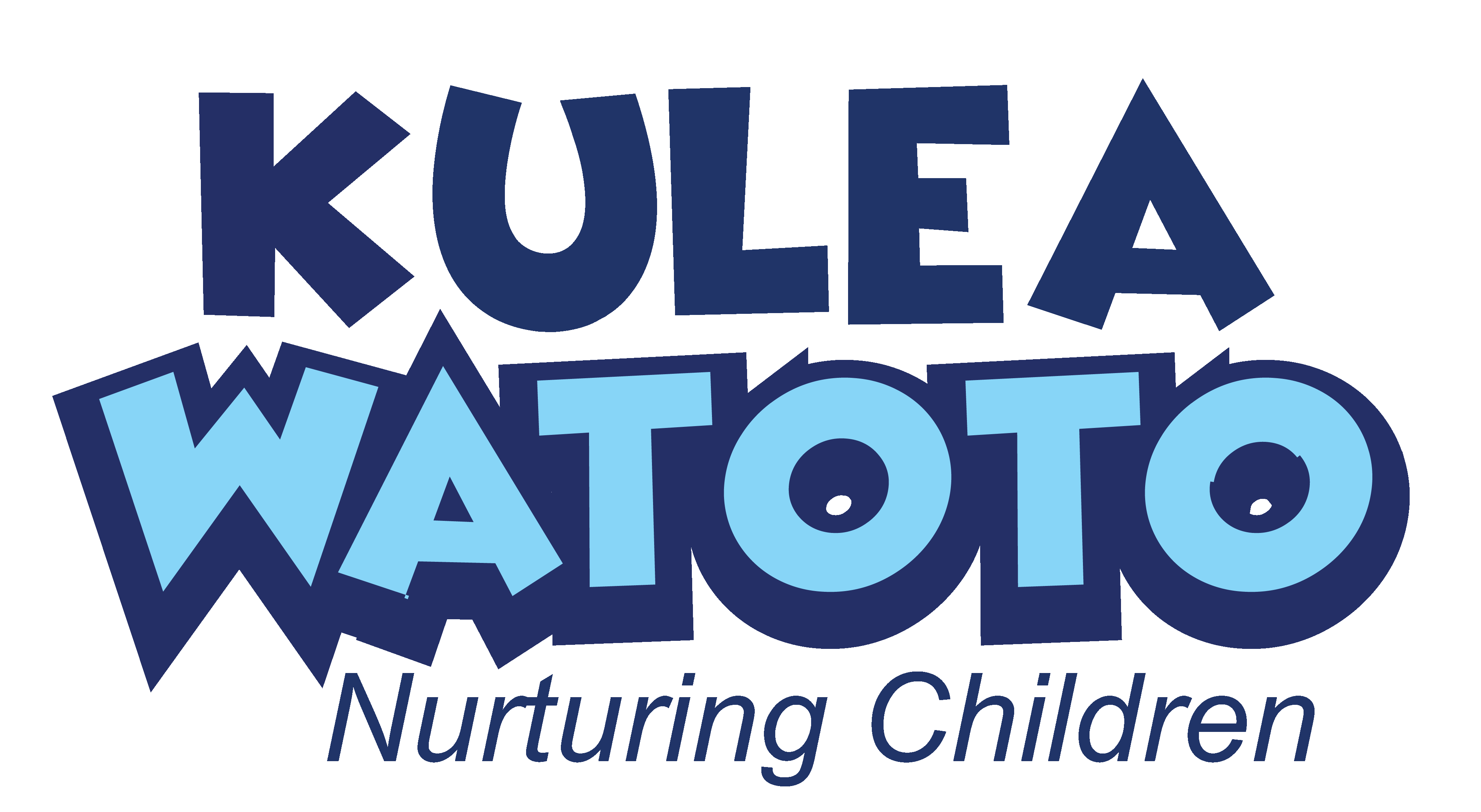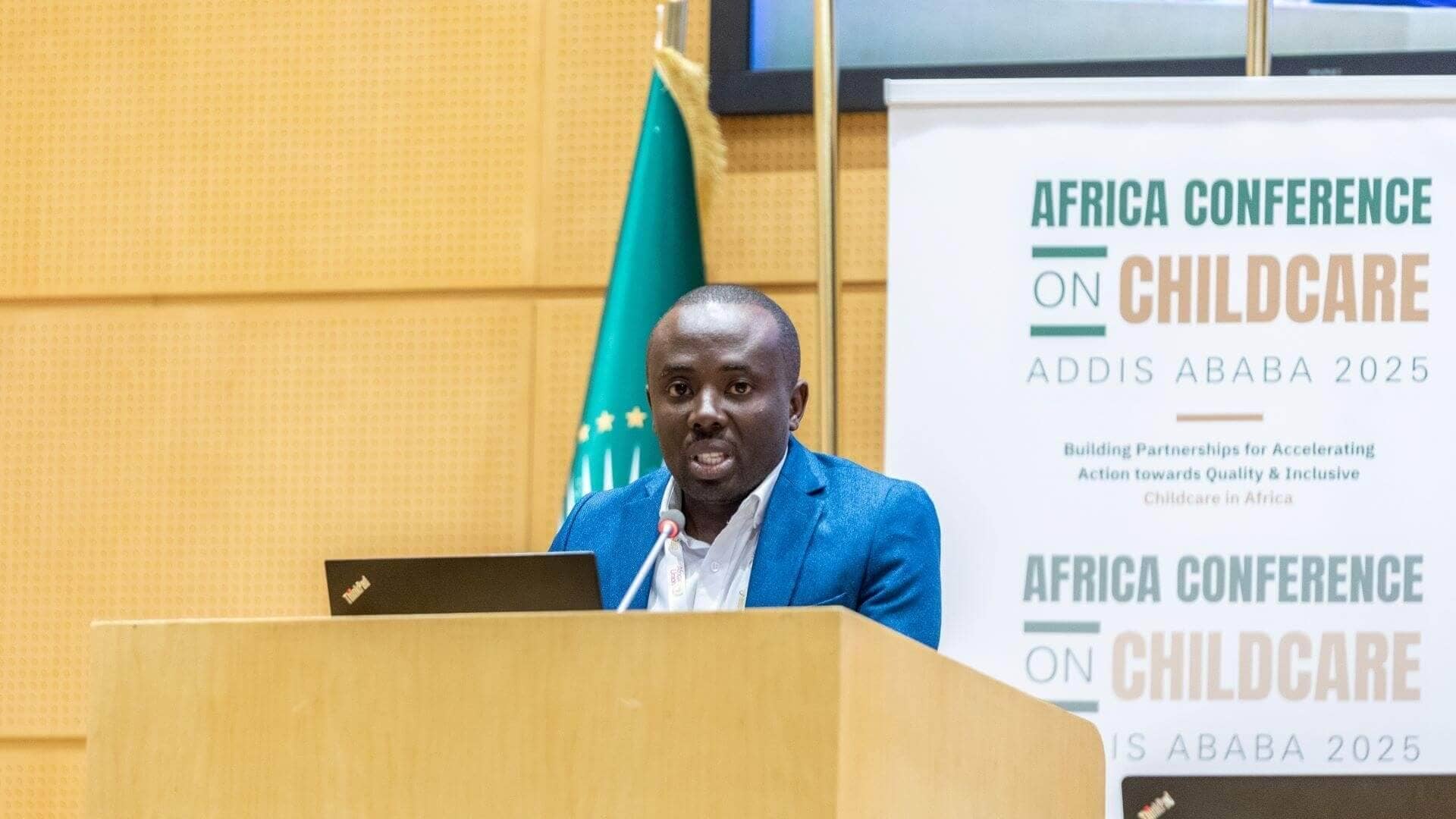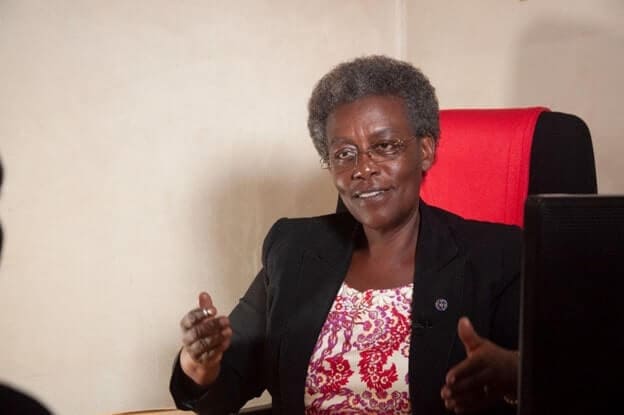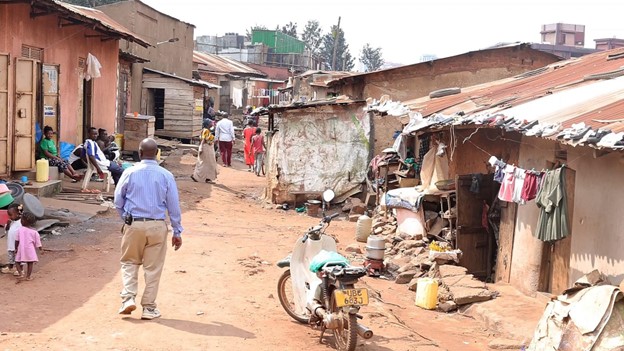Changing Perceptions: Benon Gumisiriza's Journey as a Male Caregiver
Changing Perceptions: Benon Gumisiriza's Journey as a Male Caregiver
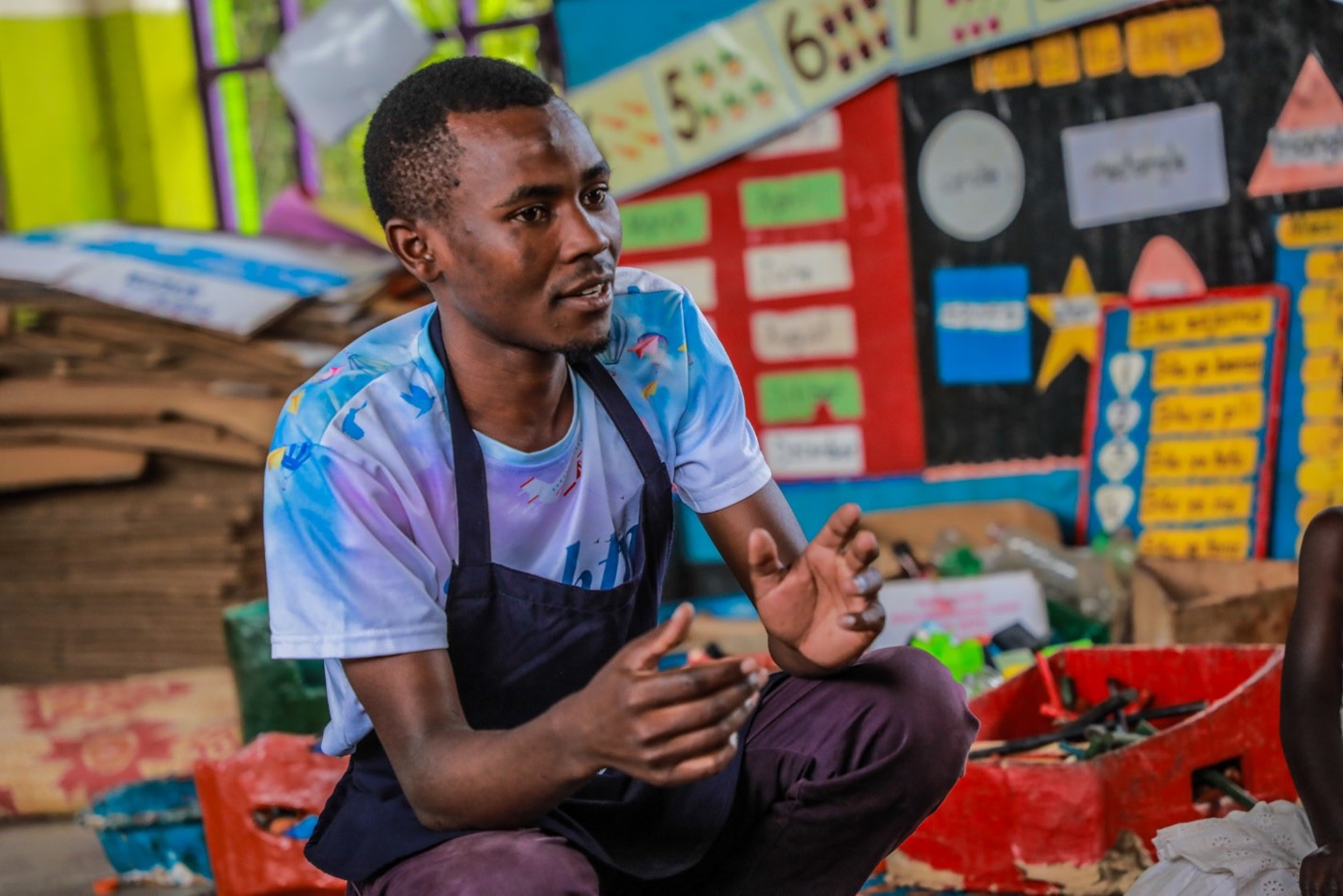
Benon Gumisiriza, a caregiver at Lucky Early Learning Center in Kyaka II Refugee Settlement conducts a learning session in his class. He is grateful for the impactful trainings Kulea Watoto has offered him that have made him a better teacher. ©IRC/Jonathan Ssekitondo
In Uganda, the belief that child-caring is solely a woman’s responsibility runs deep.
This cultural and gender norm was challenged when Benon Gumisiriza, a passionate caregiver, joined the Lucky Early Learning Center in the Mukondo C Village, Kyaka II Refugee Settlement in 2024. His presence as the first male caregiver in the centre initially raised eyebrows, sparking conversations about gender roles in childcare, but he was determined to make a difference.
“I always knew I was meant to care for children,” Benon recalls, reflecting on his journey.
His unwavering dedication saw him enrolled under the Kulea Watoto Project for specialized training on Care for Child Development (CCD) and Key Family Care Practices. These trainings have enabled Benon to conduct parenting sessions and create linkage between the community and the early childhood learning centre. Most importantly, the CCD training enabled him to better his understanding of early learning and responsive caregiving through integration with existing services in health, nutrition, education, and child protection.
“The training gave me skills on how to stimulate my learners to learn through play and other communication activities,” he says. “Even those that were not responding positively in class have greatly improved and are happy to be in class. Also, the trainings on lesson planning have enabled me to prepare adequately for classes which enables me to give the best during my teaching sessions.”
Benon is also grateful to the Kulea Watoto Project for trainings on how to make play materials from local materials. This he says has ensured that every child at the centre has something to play with at any given time.
“The concept of developing play materials from items around us has been very helpful. We are using every available thing around us to create a play material. We curve blocks from wood, ‘cars’ from empty bottles, add stones to empty bottles to make shakers, linen to make dolls, bottle tops to make counting materials etc. This has ensured that we have enough materials for our children to use while at school.”
Despite being the first male caregiver at the learning center, Benon has always found support among his female colleagues. “We share responsibilities equally,” he explains. “We don’t let gender differences dictate what we do; our focus is on the betterment of the children under our care.”
Together, they have created a nurturing environment for the kids, where teamwork thrives.
Benon’s influence extends beyond the centre’s walls. His dedication has inspired many men in the community to rethink their roles as caregivers. “I take care of my children at home; I play with them, I make them play materials, and now I see more fathers are stepping up,” he shares proudly.
It’s a shift that reflects a growing understanding that nurturing is a shared responsibility, not confined to one gender. At the ECD center, men are increasingly getting involved, contributing to activities like crafting play materials for the children, and even helping with food preparation chopping firewood.
“They’re realizing that taking part in their children’s lives is not just a woman’s job,” Benon notes.
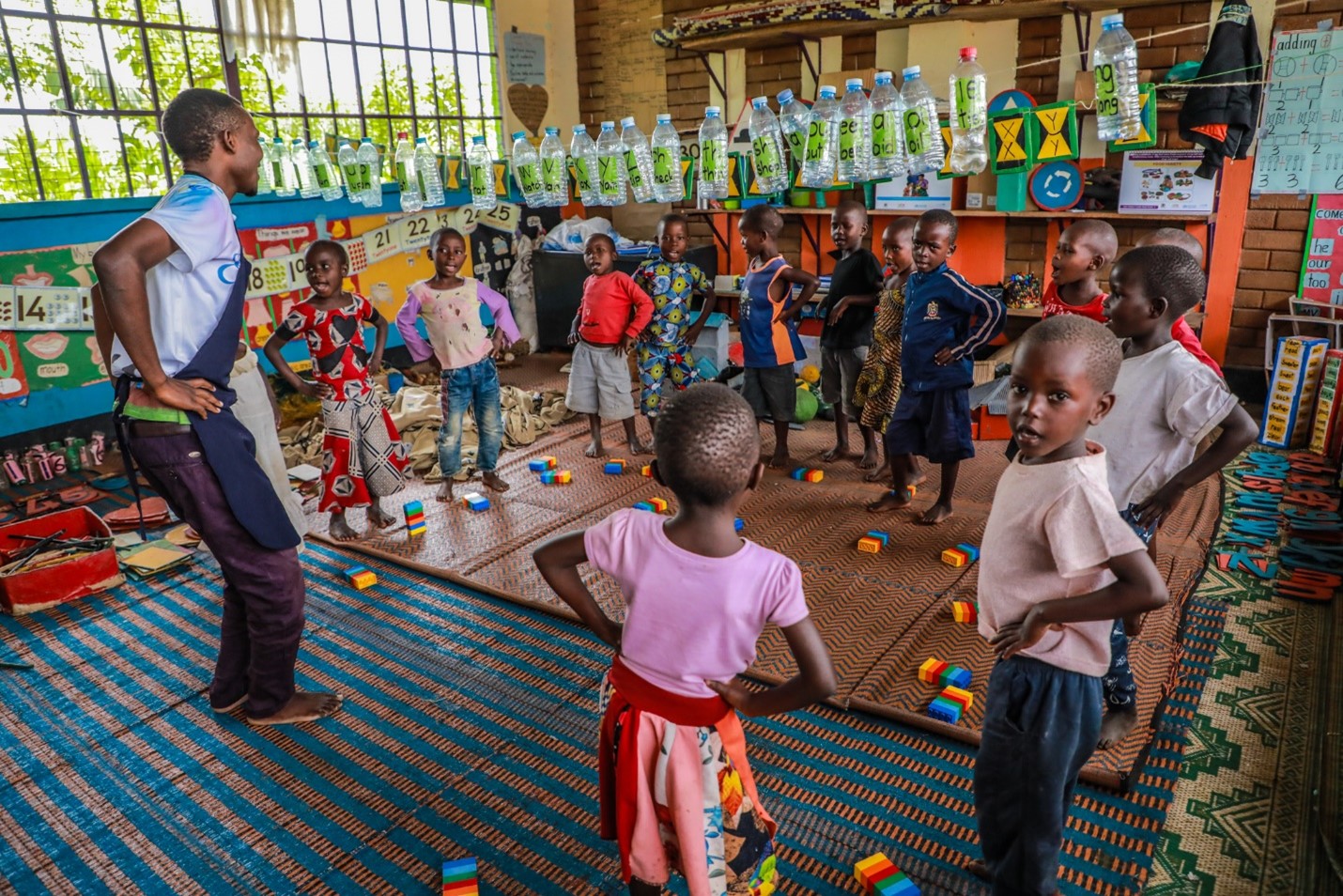
Happy times! Benon engages in a dance with his class. His fellow caregivers are happy with the impact that he is having on the young learners with many confiding when challenged. ©IRC/Jonathan Ssekitondo
Enid Kyarisima, a fellow caregiver at the learning center, acknowledges the challenges. “Many men feel pressured to provide financially, which makes them hesitant to volunteer,” she explains.
However, she also recognizes the gradual change in mindset. “Benon has shown that men can excel in caregiving. Some children even prefer his assistance because he embodies the father figure that they sometimes need for comfort,” Enid says.
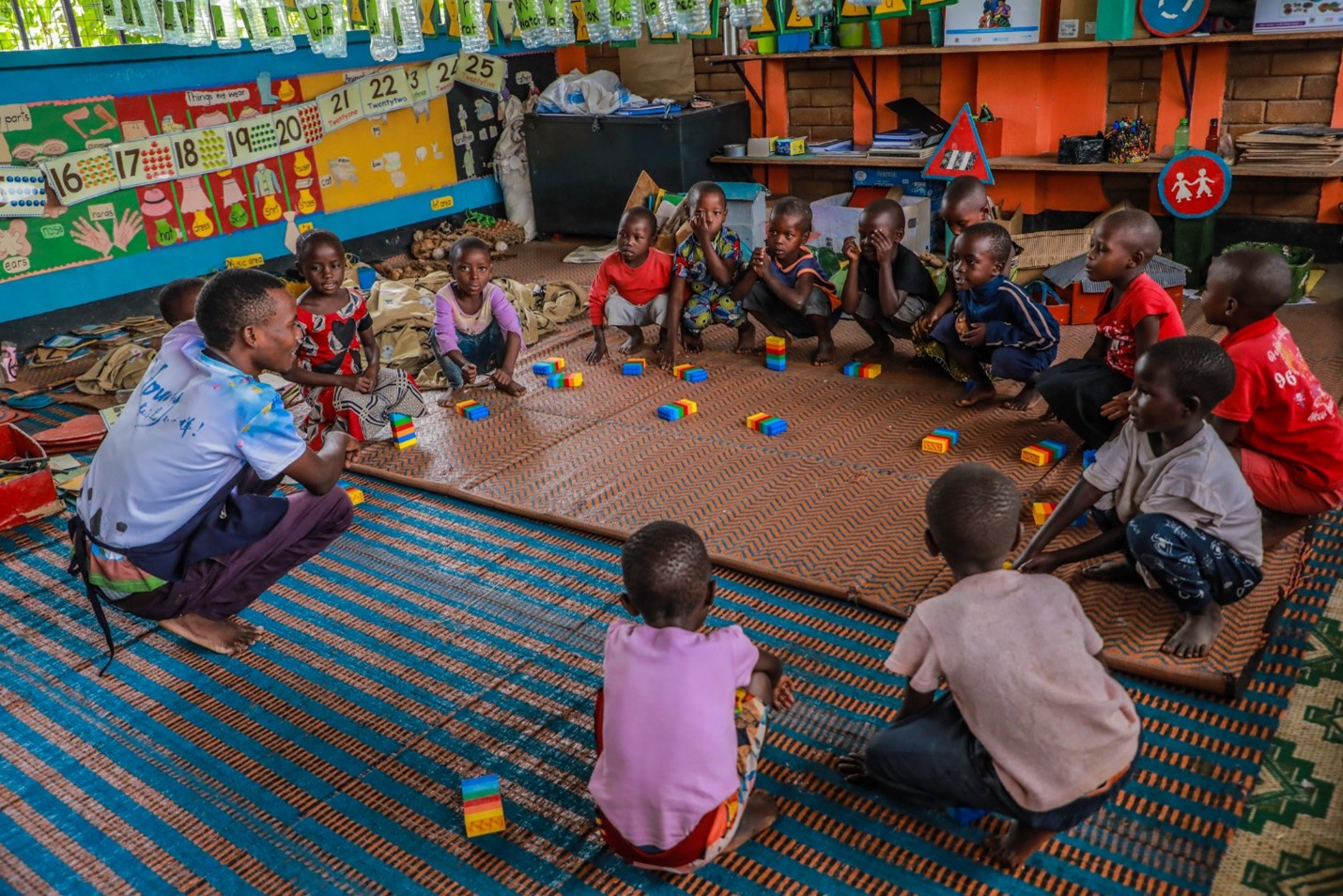
Lucky ECD in Kyaka continues to offer early learning opportunities to learners in both the refugee and host communities. Caregivers like Benon have been central to this service. ©IRC/Jonathan Ssekitondo
Benon’s journey is a powerful reminder that stereotypes can be broken. Through his compassion and dedication, he has not only transformed his own life but has also begun to reshape the perceptions of fatherhood in his community. As more men embrace their roles as caregivers, the future looks brighter for the children of Mukondo, who will grow up knowing that love and care come from everyone, regardless of gender.
